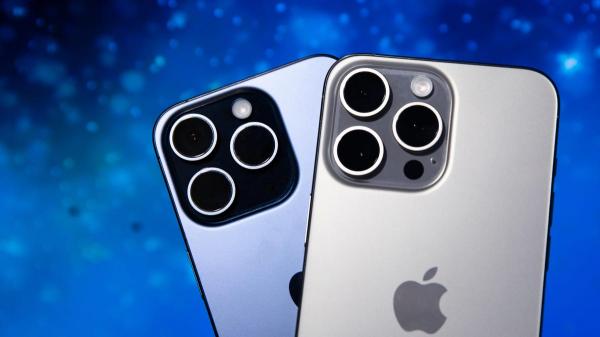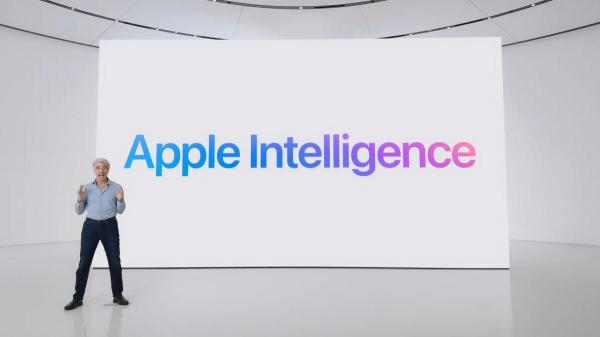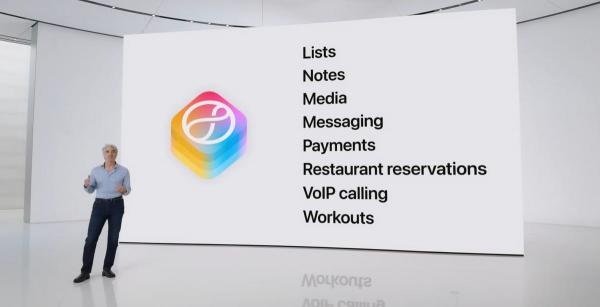Apple's event countdown: 1 day left, sneak peek at Apple Intelligence highlights
![]() 09/09 2024
09/09 2024
![]() 591
591
On Tuesday (Beijing time), Apple will hold its Glowtime event, where the iPhone 16 and Apple Watch X (Series 10) may be unveiled. However, Apple Intelligence is expected to steal the show, with significant hype already built up during Apple's WWDC keynote in June.
Apple has been aggressively promoting generative AI across its operating systems and has opened up a public beta for Apple Intelligence, albeit currently limited to developers.
The latest iOS, iPadOS, and MacOS developer betas showcase AI-powered writing tools, Siri enhancements, and requests linked to the Photos library, as promised by Apple. However, the full rollout of these features is anticipated later this fall.
Notably, Apple Intelligence is currently in a 'beta of a beta' phase. It's only available as part of the iOS 18.1, iPadOS 18.1, and MacOS Sequoia 15.1 developer betas, while public betas on iPhones, Macs, and iPads remain based on iOS 18.0, iPadOS 18.0, and MacOS Sequoia 15.0.
Apple won't unveil all promised AI upgrades at once.

Apple Intelligence's developer beta includes AI-suggested writing tools that pop up in documents or emails, a photo editing tool called 'Clean Up' to remove unwanted parts from images, and Siri improvements with a more natural-sounding voice, enhanced contextual conversations, a glowing border around the display when Siri is active, and a double-tap gesture at the bottom of the screen for input.
The beta also includes instant movie memories requests in Photos and AI summaries in Messages, emails, notifications, and notes. However, ChatGPT integration, Apple's Gen Moji and Image Playground capabilities, and other Siri features are not yet included.
The developer beta includes an opt-in feature for Apple Intelligence, which Apple says may take hours to approve. It's unclear if a similar opt-in process will apply to the public beta later this year.
While some of Apple's AI features sound useful, they'll initially be limited to specific iPhones (iPhone 15 Pro and above), Macs, and iPads with M-series chips, meaning not everyone will have access. We hope to see how these features perform in practice.
Apple Intelligence bills itself as 'AI for the rest of us,' integrating into iPhones, iPads, and Macs to aid writing, productivity, and self-expression.
It leverages personal context on Apple devices to make recommendations and generate more personalized results, setting a new standard for AI privacy, according to Apple.
In her coverage of Apple Intelligence, CNET's Lisa Eadicicco notes that understanding personal context is a key strength, enabling more accurate answers and task execution.
'Apple seems to be leveraging this strategy to differentiate its AI efforts from those previously announced by competitors,' writes Eadicicco.
'For instance, the company explains how Apple Intelligence considers factors like traffic, your schedule, and contacts to help you understand if you'll make it to an event on time,' she adds.
Currently, the Apple Intelligence beta is accessible on iPhone 15 Pro, iPhone 15 Pro Max, and any iPad or Mac with an M1 chip or later, with Siri and device language set to US English.

This suggests Apple's next-gen phones (likely the iPhone 16 series) will also run Apple Intelligence.
Apple Intelligence will publicly launch this fall as part of iOS 18, iPadOS 18, and MacOS Sequoia.
Here's a list of compatible Apple devices for Apple Intelligence:
iPhone 15 Pro and 15 Pro Max
iPad Air with M1 or M2 chip
iPad Pro with M1, M2, or M4 chip
MacBook Air with M1, M2, or M3 chip
MacBook Pro with M1, M2, or M3 chip
Mac Mini with M1 or M2 chip
Mac Studio with M1 or M2 chip
iMac with M1, M2, or M3 chip
Mac Pro with M2 chip
Apple hasn't specified a date but says Apple Intelligence will publicly launch later this fall as an optional beta feature.
Currently, users can access Apple Intelligence on compatible iPhones, iPads, or Macs running iOS 18.1, iPadOS 18.1, or MacOS Sequoia 15.1 developer betas, with Siri and device language set to US English.
The initial launch is US-exclusive, requiring compatible devices with Siri and device language set to US English. Broader language support is planned for 2025.
Apple Intelligence operates locally on devices (iPhone, iPad, or Mac) or on Apple's cloud servers through what Apple calls 'private cloud computing.'
Whether Apple Intelligence processes data on-device or in the cloud depends on user prompts and queries. It's not ChatGPT and doesn't run on OpenAI's services.

However, Apple Intelligence supports complementary third-party AI services, with ChatGPT being the first announced integration.
ChatGPT access will be integrated into Siri and writing tools on iOS 18, iPadOS 18, and MacOS Sequoia, streamlining access across Apple devices.
06. What tools will Apple Intelligence offer?
Apple Intelligence features fall into three categories: writing, images, and Siri.
Writing Tools: These tools appear wherever text input is possible. Apple Intelligence can proofread, rewrite versions, adjust tone and wording, and summarize selected text with a tap.
Image Tools: Create original images based on prompts in the new Image Playground app. Users can transform rough sketches into relevant images with Apple Intelligence-powered Image Wand, aiding note-taking.
Users can also generate customized and unique Genmojis directly from their keyboard. Apple says users can even select a person from their Photo Library to create a similar Genmoji.

In the Photos app, users can create personalized memory movies based on their descriptions.
Siri Tools: Apple Intelligence overhauls Siri with a new design, enhanced language understanding, and text-based interactions. Siri's voice and responses sound more natural and conversational. Apple Intelligence enables Siri to perceive personal context, act across apps, and understand device capabilities and settings.
07. How much does Apple Intelligence cost?
Apple doesn't charge for Apple Intelligence and hasn't announced any plans to do so.









